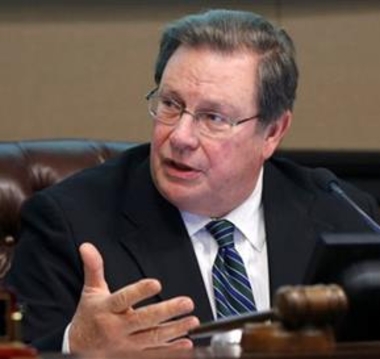Arkansas anti-discrimination limits face uncertain future

Little Rock, Ark. (AP) — A Little Rock ordinance prohibiting the city and its vendors from discriminating based on sexual orientation or gender identity doesn't just open the door to a legal challenge over an Arkansas law criticized as anti-gay. It also provides other cities interested in expanding anti-discrimination protections a new argument to do so.
With no discussion, Little Rock's city board voted last week to ban discrimination against lesbian, gay, bisexual and transgender people in hiring and city services, including those offered through outside vendors. It's the first of a series of moves planned in the coming weeks to challenge a state law intended to prevent local anti-discrimination protections for LGBT people.
The wrinkle Little Rock's ordinance presents isn't just an argument over the law's constitutionality. It raises questions about whether the state law did what its supporters intended.
Little Rock's requirement for its city agencies appears to comply with the state law — which exempts local government's policies for their own employees. But the city is going a step further by requiring its vendors to agree to similar anti-discrimination protections.
It's a move that supporters say is needed to counter a perception they say the Republican-led Legislature fed with the limits on anti-discrimination protections and a religious objections law that was reworked over concerns it was anti-LGBT.
"I think we're sending a message that we're a welcoming community, that we're diverse, that we realize that's good for business, that we value all of our citizens," said City Director Kathy Webb, the sponsor of the ordinance. "I think that's very important to make that kind of statement for Little Rock."
City officials are also arguing their move doesn't defy state law. The state measure taking effect later this year prohibits cities and counties from banning discrimination on a basis not contained in state law. But Little Rock's attorney has noted that state anti-bullying and domestic violence shelter laws already on the books include protections for LGBT people.
It's an argument that could be adopted by other cities looking at expanded anti-discrimination protections. They include Eureka Springs, whose residents will vote whether to keep its ordinance prohibiting the city and businesses from discriminating based on sexual orientation or gender identity.
Although Little Rock's ordinance isn't as expansive, the city's argument throws into question whether the state law will prevent Eureka Springs from enforcing that ordinance.
"I think this probably clears the way for all the other ordinances that other cities are considering or have considered," said Little Rock Mayor Mark Stodola, who said he believed the limit on local anti-discrimination protections was unconstitutional.
The state so far is providing little guidance, with Attorney General Leslie Rutledge declining to weigh in on the legality of Little Rock's ordinance. The lawmaker behind the anti-discrimination limits said he believes Little Rock's ordinance goes against the intent of his measure, but said it'll likely take a court to clear up the issue.
"I think we'll find out really soon whether there's clarity or not," Republican Sen. Bart Hester said. "The first time Little Rock bumps a vendor because they don't like their policies, you'll find somebody start some litigation and we'll find out."
While fending off challenges at the local level, the limits on anti-discrimination ordinances could also face a fight at the ballot box next year. Rutledge last week approved the wording of a referendum on the law, a move clearing the way for a group to begin gathering signatures to place the proposal on the 2016 ballot.
Getting the referendum on the ballot would put the law's enforcement on hold. Supporters face a late July deadline, but are pointing to the Little Rock ordinance as a sign that they can get the 51,000 signatures needed to qualify.
"I think there's an overwhelming amount of support not only from the groups of people who might be affected by the law, but the support from the business community has been surprising," said David Couch, the Little Rock attorney behind the effort. "I think the people who do business in this state realize this law could be a black eye for this state."
By Andrew DeMillo, Associated Press. Copyright 2015 The Associated Press. All rights reserved. This material may not be published, broadcast, rewritten or redistributed.
The Gayly – April 25, 2015 @ 2:10pm.





